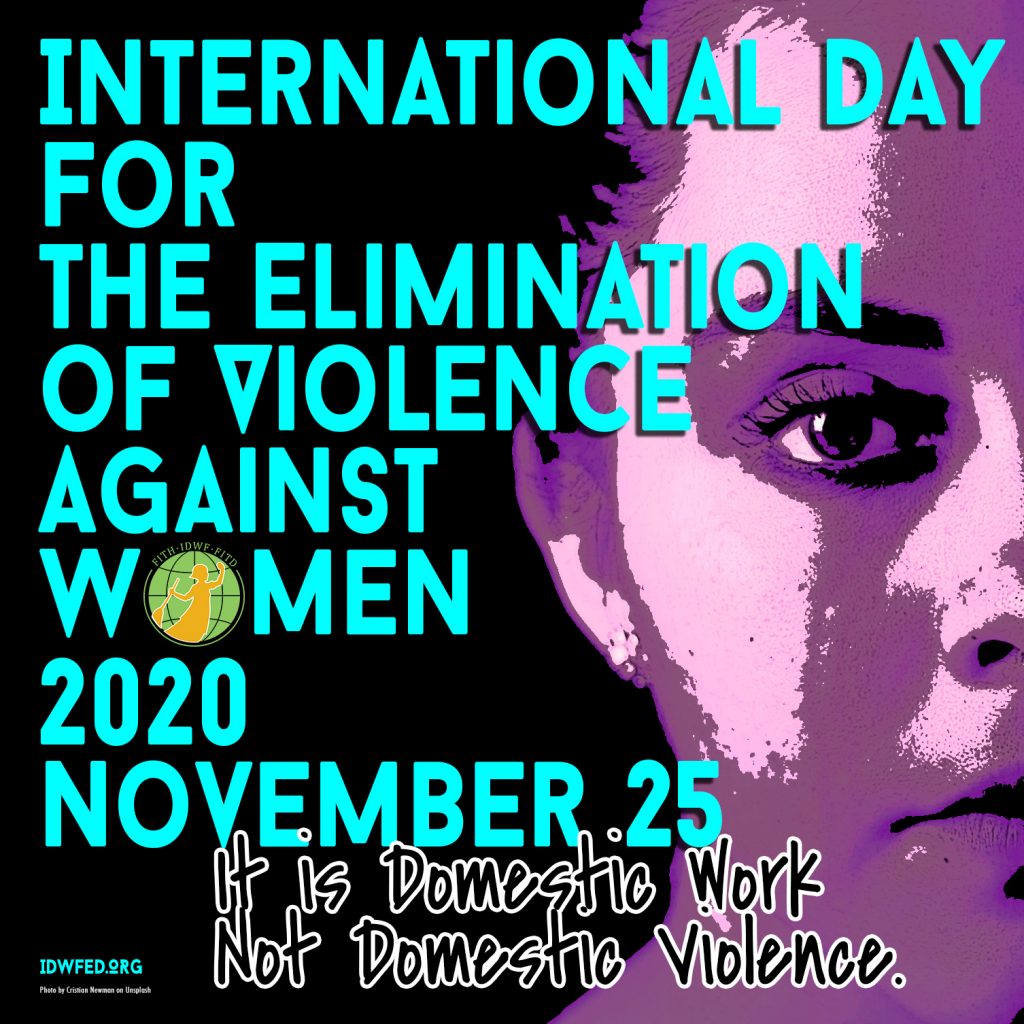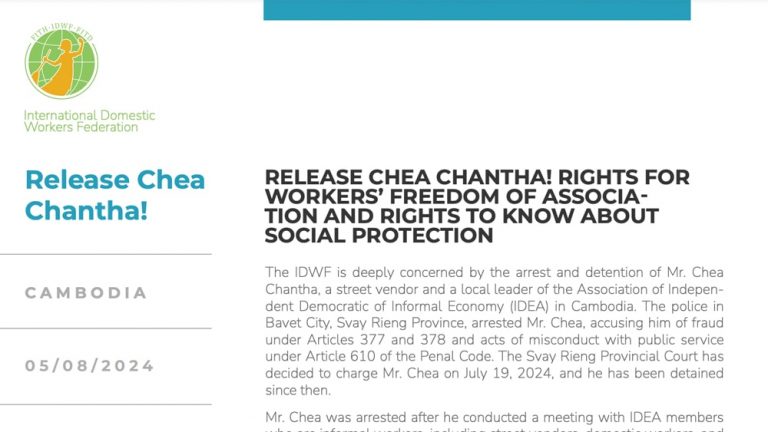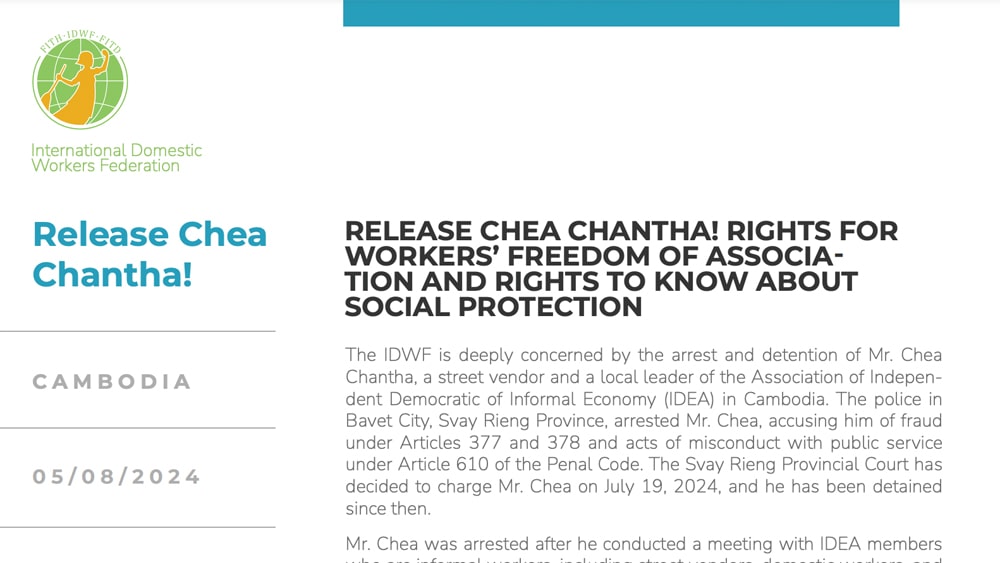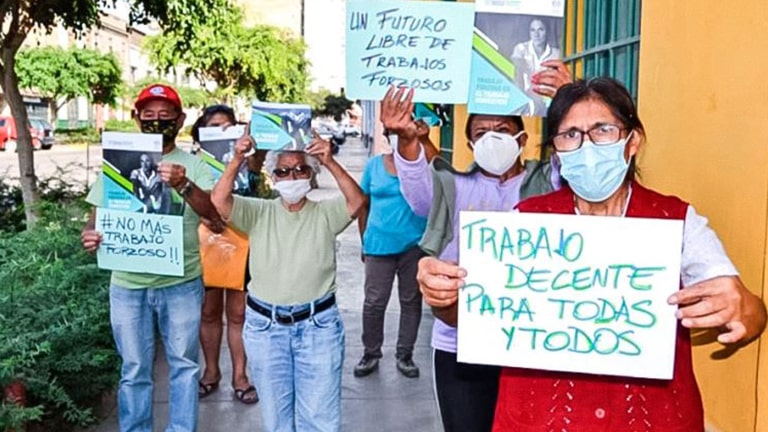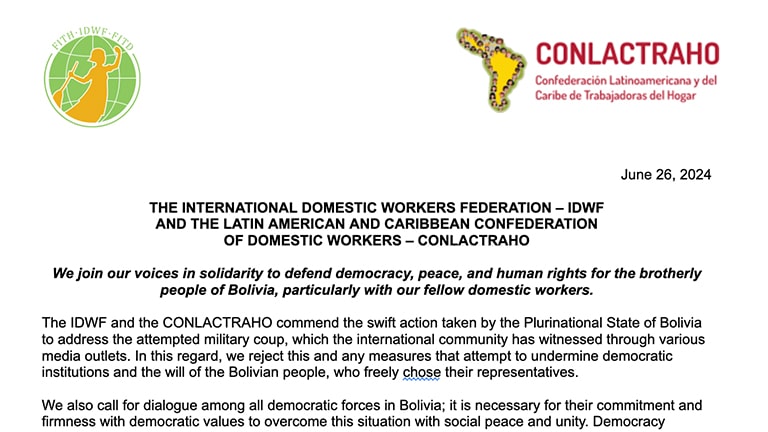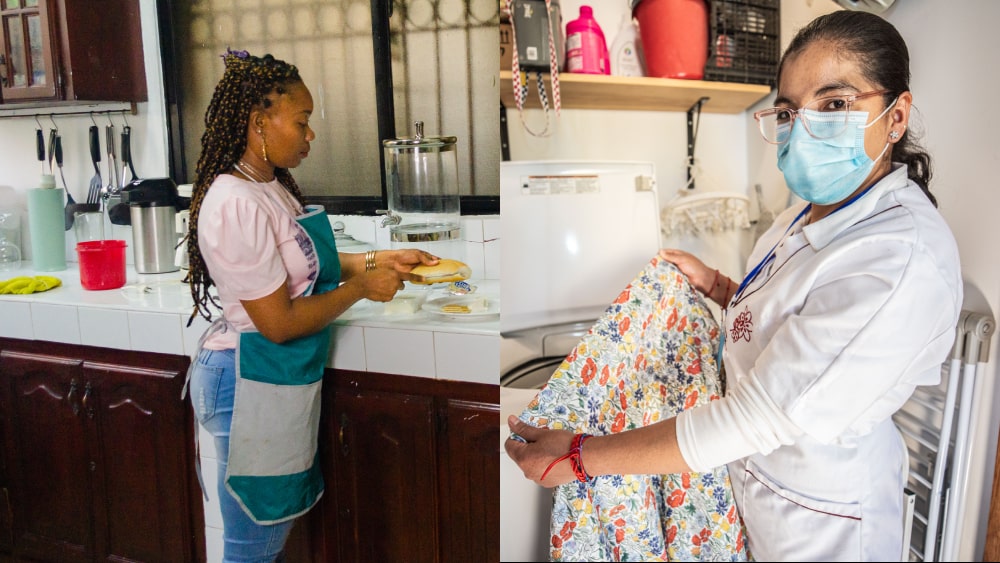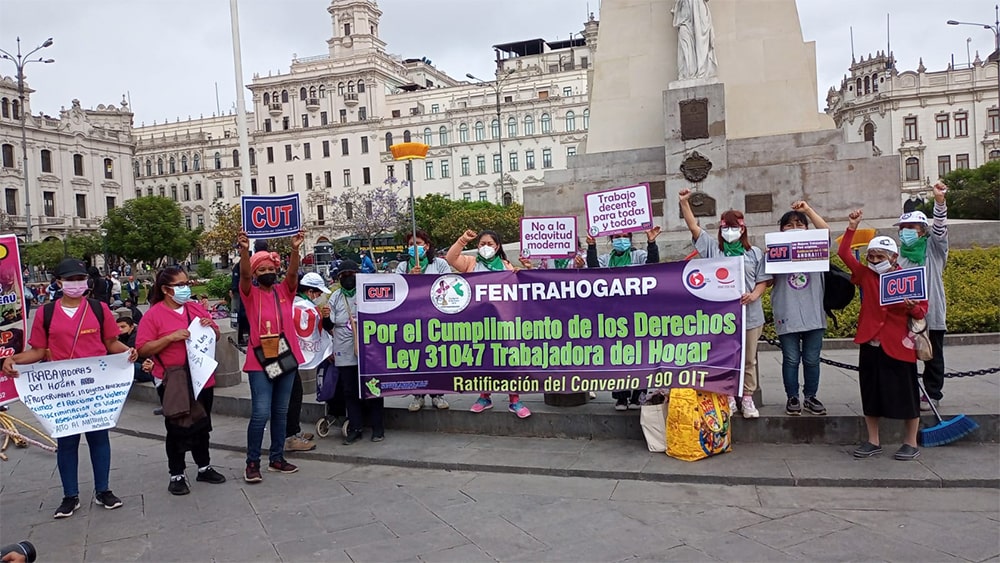On the International Day to End Violence Against Women, we think of women workers, who are the predominant population engaged in domestic work, paid, underpaid, and unpaid. Domestic work is an accessible form of employment for low income women because in addition to providing them with a source of income, it at times gives them a roof above their heads and food for their table.
Details
We Shall be Silent No More:
We Signed up for Domestic Labor,
Not Domestic Abuse
On the International Day to End Violence Against Women, we think of women workers, who are the predominant population engaged in domestic work, paid, underpaid, and unpaid.
Domestic work is an accessible form of employment for low income women because in addition to providing them with a source of income, it at times gives them a roof above their heads and food for their table.
Domestic work provides 67 million people with employment around the globe, however, one that is fragile and often unprotected. Poverty plays a detrimental role in placing women at greater risk for experiencing violence, as they have limited options for employment and often must single handedly support extended families access resources that they themselves never had. Without labor protection, domestic workers experience endless uncertainties and increased exposure to a violence so often “out of sight and out of mind” that it becomes invisible and considered part of the job.
The impact of gendered violence on the mental health of women workers has been acknowledged, however, seldom addressed in situations of informality and precarity, where mental health becomes treated as luxury rather than a basic health concern. Domestic workers experience sexism, classism, racism, in addition to inhumane treatment and social isolation: they often watch their hopes of decent life erode as litigative and supportive policy contexts become all the more distant and inaccessible with the outbreak of the pandemic. The sector is already isolated due to the high degree of personal dependence on the employer: domestic workers do not have intermediary lines of management or colleagues to provide support, nor unions within the workplace.
Under COVID-19, people are asked to abide by social isolation, but for domestic workers, domestic confinement transforms to domestic abuse. Because of the nature of their work, domestic workers are often forced into silence when they experience violence and abuse at the hands of their employers.
Domestic workers around the world unionize to address the systemic nature of the gender-based violence and its links to discriminatory laws and policies they experience. They call for the ratification and implementation of both the International Labor Organization (ILO) Decent Work for Domestic Workers Convention (C189) and ILO Violence and Harassment in the World of Work Convention (C190). The latter has created a new incentive to end violence against women, as it recognizes the right of every worker to be free from violence and harassment in the world of work, which includes public spaces and private spaces used for work. These are key aspects of C190 which make it groundbreaking and provide fertile ground for litigation and organizing for domestic workers.
The International Domestic Workers Federation demands that solid measures are taken by governmental agencies and civil societies alike, to ensure the respect and recognition of the human, labor, and women rights of the workers.
It is Domestic Work
Not Domestic Violence.
Under COVID-19,
It is Domestic Confinement Not Domestic Abuse.
#CareforThoseWhoCareForYou
#RatifyC189
#RatifyC190
